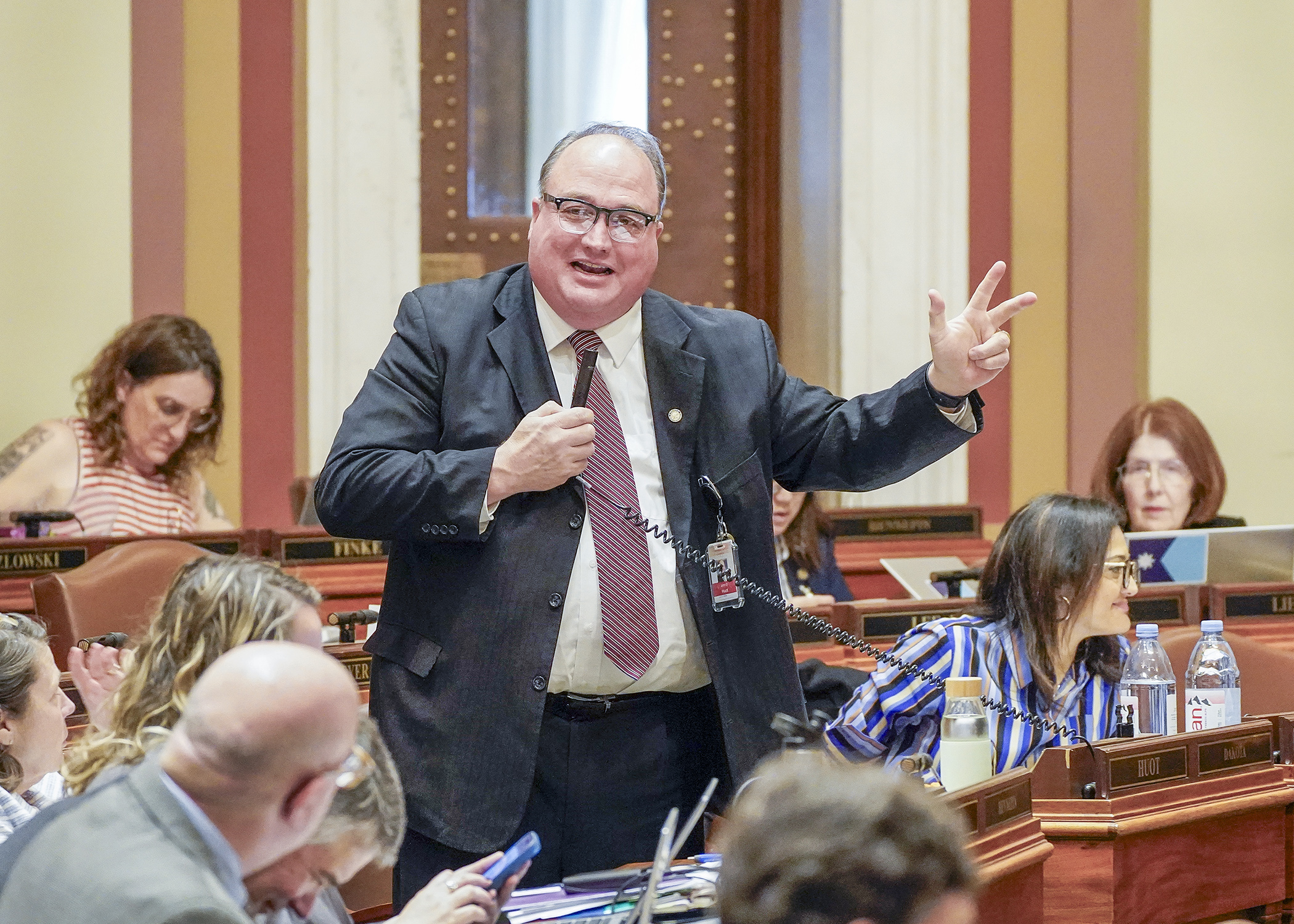House OKs legislation creating statewide emergency medical services office

Is it prudent to create a new government body to oversee emergency medical services in Minnesota without sufficient funding for ambulance services throughout the state?
The answer depends on who is answering.
The House passed HF4738, as amended, Tuesday by a 70-58 vote. It now heads to the Senate.
Sponsored by Rep. John Huot (DFL-Rosemount), it would establish the Office of Emergency Medical Services to replace the Emergency Medical Services Regulatory Board, and by Jan. 1, 2025, transfers duties and authorities from the board to the new office.
Its director would be able to temporarily suspend ambulance licenses, and deny, suspend, revoke, place conditions on, or refuse to renew the registration of an emergency responder, be they an EMT, AEMT, paramedic, physician, physician assistant, or registered nurse, who violates relevant rules.
The bill would provide $6 million in fiscal year 2025 for a pilot program in Otter Tail and Grant counties and another in St. Louis County. In this “sprint” model, a paramedic with appropriate equipment and medicine would roam the service area, ready to respond to emergency calls immediately while the primary ambulance service travels to the scene.
A 2022 evaluation report of emergency ambulance services by the Office of the Legislative Auditor raised concerns about the regulation and viability of ambulance services and regulatory board operations. The auditor found the board to have been ineffective as a systemwide leader on emergency medical issues and failed to perform some of its basic responsibilities.
“This board is failing,” said Huot, who also works as an EMT. He said it would be better to identify funding after the office is established so that oversight can be afforded. “We cannot do nothing.”
Republicans lamented that the bill would appropriate $6 million but would not assist understaffed and underfunded ambulance services in rural Minnesota.
“It doesn’t provide that relief that we need,” said Rep. Danny Nadeau (R-Rogers).
An amendment to provided $122.5 million in ambulance aid payments in fiscal year 2025 was ruled out of order, and another funding amendment was withdrawn by its sponsor.
“At the end of the day, volunteers are still subsidizing the back of our industry,” said Rep. Jeff Backer (R-Browns Valley), who is a volunteer emergency medical technician.
Other bill provisions would:
- require the governor to appoint a director, with Senate advice and consent;
- create medical services, ambulance services, and emergency medical services divisions within the new office;
- establish an Emergency Medical Services Advisory Council to, in part, review and make recommendations on regulation of ambulance services and medical response units; and
- establish Emergency Medical Services Physician and Labor and Emergency Medical Service Providers advisory councils.
Related Articles
Search Session Daily
Advanced Search OptionsPriority Dailies
Speaker Emerita Melissa Hortman, husband killed in attack
By HPIS Staff House Speaker Emerita Melissa Hortman (DFL-Brooklyn Park) and her husband, Mark, were fatally shot in their home early Saturday morning.
Gov. Tim Walz announced the news dur...
House Speaker Emerita Melissa Hortman (DFL-Brooklyn Park) and her husband, Mark, were fatally shot in their home early Saturday morning.
Gov. Tim Walz announced the news dur...
Lawmakers deliver budget bills to governor's desk in one-day special session
By Mike Cook About that talk of needing all 21 hours left in a legislative day to complete a special session?
House members were more than up to the challenge Monday. Beginning at 10 a.m...
About that talk of needing all 21 hours left in a legislative day to complete a special session?
House members were more than up to the challenge Monday. Beginning at 10 a.m...